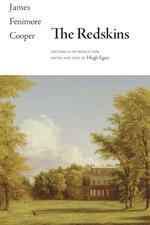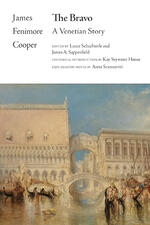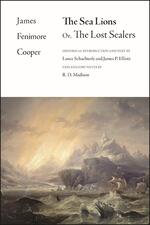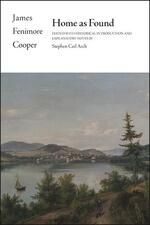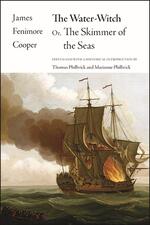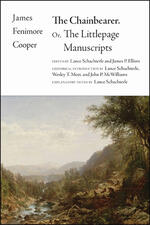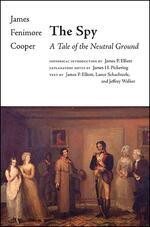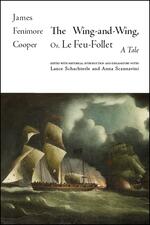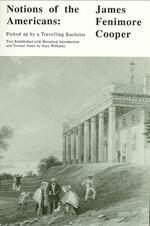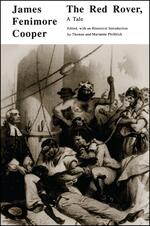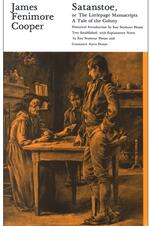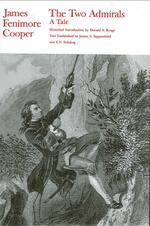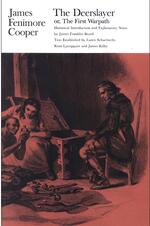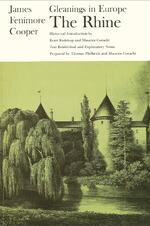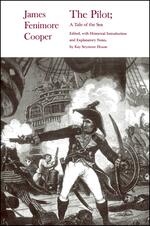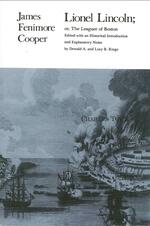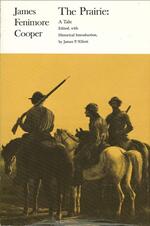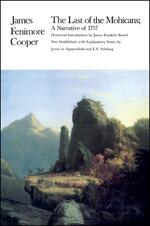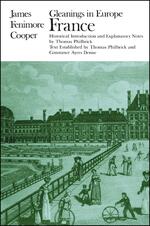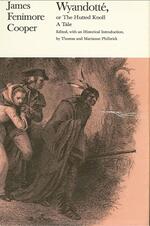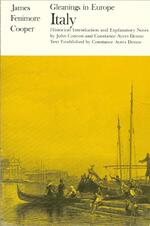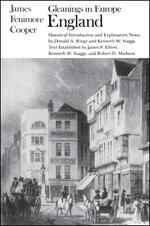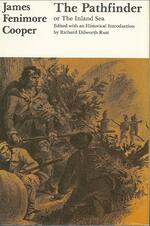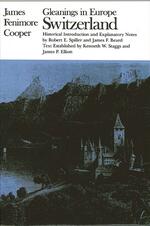The Writings of James Fenimore Cooper
The Redskins
Cooper's 1846 novel about the Anti-Rent Wars in upstate New York, now available in a scholarly edition.
The Bravo
A novel of early eighteenth-century Venice that Cooper called "in spirit, the most American book I ever wrote."
The Sea Lions
An exciting adventure tale of sealers caught in the Antarctic ice in the early nineteenth century and forced to winter over in extreme conditions.
Home as Found
A novel of manners set in the drawing rooms, ballrooms, and Wall Street offices in 1830s New York, dramatizing conflicts that we are still grappling with nearly two hundred years later.
The Water-Witch
An exciting tale of nautical adventure on the waters of colonial New York Harbor.
The Chainbearer
Cooper’s The Chainbearer presents an exciting narrative that interrogates issues of what it means to own land. The novel examines the claims of ownership of wilderness land among Native Americans, New England squatters, and the old New York families with legal deeds.
The Spy
An exciting Revolutionary War tale of double agents and counterespionage in New York State in 1780.
The Wing-and-Wing, Or Le Feu-Follet
A thrilling novel of seafaring adventure, romance, and Napoleonic history, from the author of The Leatherstocking Tales.
Notions of the Americans
Notions of the Americans in considered Cooper's first work of non-fiction despite a thin overlay of character and plot. Written in the form of a travel narrative, it addresses the widespread ignorance ...
The Red Rover
Turning to his own extensive maritime experience, Cooper's novel, written in Paris in 1827, reflects his immersion in the romantic movement that was sweeping the Continent. European readers enjoyed his ...
Satanstoe, or the Littlepage Manuscripts
Though Satanstoe has been too much neglected by readers of Cooper's time and ours, it is one of his most interesting books, combining nostalgic autobiographical recollections, pictures of manners, action ...
The Two Admirals
Author of the first scholarly history of the United States Navy, James Fenimore Cooper had long hoped to commemorate the American Navy by representing its fleet in action. Since no such fleet existed ...
The Deerslayer or the First Warpath
Written during a nostalgic interval during Cooper's stormy battles with the Whig Press, The Deerslayer (1841) is the last of the world-famous Leatherstocking Tales in point of composition, though first ...
Gleanings in Europe
Gleanings in Europe: The Rhine is an account of James Fenimore Cooper's travels in Europe at the time of the 1832 revolt in Paris, when he hoped General Lafayette would be declared President of France ...
The Pilot
Having drawn on local knowledge and private information for The Spy and on his own boyhood experiences for The Pioneers, it was inevitable that Cooper would seek a way to convert yet another area of his ...
Lionel Lincoln: or, The Leaguer of Boston
Written to commemorate the fiftieth anniversary of the beginnings of the American Revolution, Lionel Lincoln was a radically new experiment in historical fiction. To recreate its events with the utmost ...
Prairie, The: A Tale
In the spring of 1826, soon after the publication of The Last of the Mohicans, James Fenimore Cooper immersed himself in The Prairie. In taking Natty Bumppo from his beloved forests of New York state ...
The Last of the Mohicans
Celebrated for almost 150 years as the prototype of the American adventure story, The Last of the Mohicans remains a perennial favorite, an astonishingly complex work to be read on many levels. Irradiated ...
Gleanings in Europe
France (1837) was the third volume published in Cooper's Gleanings in Europe series, but first in the chronology of his European experience. Less sequential than his other travel narratives, France distills ...
Wyandotte, or the Hutted Knoll
"One of the misfortunes of a nation, is to hear little besides its own praises," wrote James Fenimore Cooper in his Preface to Wyandotté in 1843. The novel arrived at a time when a patriotic mythology ...
Gleanings in Europe
Describing Italy as "the only region of the earth that I truly love," James Fenimore Cooper used the style of picturesque impressionism to convey his vision of Italy as the microcosm of an ordered and ...
Gleanings in Europe
A contemporaneous reviewer called James Fenimore Cooper's England "unquestionably the most searching and thoughtful, not TO say philosophical of any" of the books "published by an American on England." ...
The Pathfinder
With the publication of The Pathfinder in 1840, James Fenimore Cooper engaged in what he called the "hazardous experiment" of reviving one of his most popular characters who had been allowed to die in ...
Gleanings in Europe
In the summer of 1828 James Fenimore Cooper, his wife, and their five children set out from Paris for Switzerland, and Cooper wrote that he experienced a "glorious anticipation," for "a common-place converse ...
The Pioneers or the Sources of the Susquehanna
Written in 1821-22 at a crucial point in Cooper's life and based on some of his most cherished youthful memories, The Pioneers today evokes the American pioneering experience with astonishing vibrance ...
